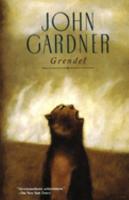
Summary: Grendel presents itself as a parallel novel to the first ever epic of Beowulf, telling the story of the monster Grendel. Grendel lives in an isolated cave with his mother, whom throughout the novel, he is unable to communicate with. Eventually, Grendel begins to wander further outside the cave, encountering humans. At first, he tries to befriend them. However, he is only seen as a monster and the humans attack him. From then on, he forms a complicated war with them, a mix of envy and hatred. Incorporated throughout the novel are various philosophic perspectives, as Grendel struggles to find meaning in what he deems a indifferent world and his purpose as a instrument for the heroic deeds of Beowulf.
Opinion: John Gardner creates a complex and intriguing character out of the once 2D Grendel. The rewritten events of the classic tale take on a existentialist and even humorous tone through Grendel’s point of view. The most compelling element of this novel was the contrast between the original heroic tale and Grendel’s existential despair. It inspires the reader to question nihilism and aestheticism, monotony, and the journey to oneself. Although the novel provided a unique spin on the classic Beowulf, readers may find it hard to pick up on the philosophies and symbolism in the novel.
